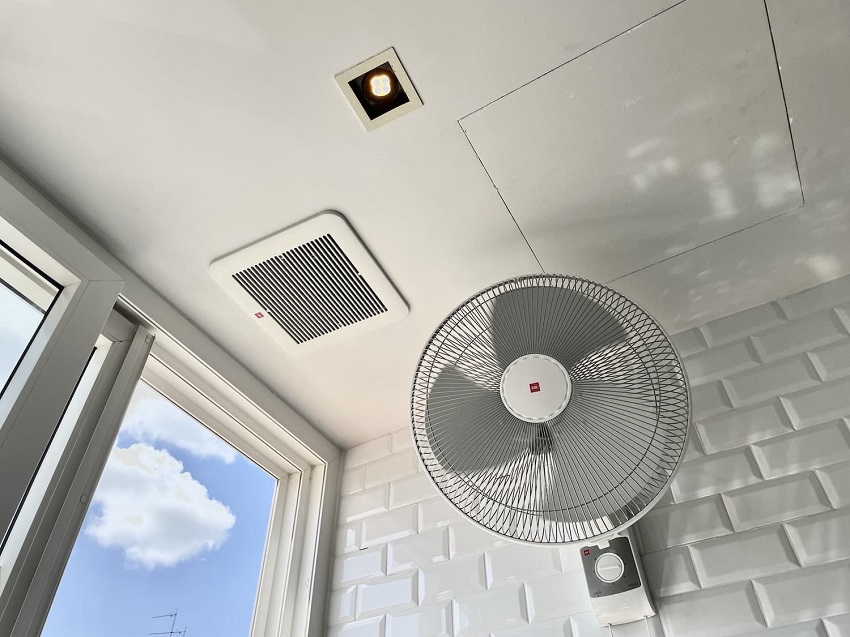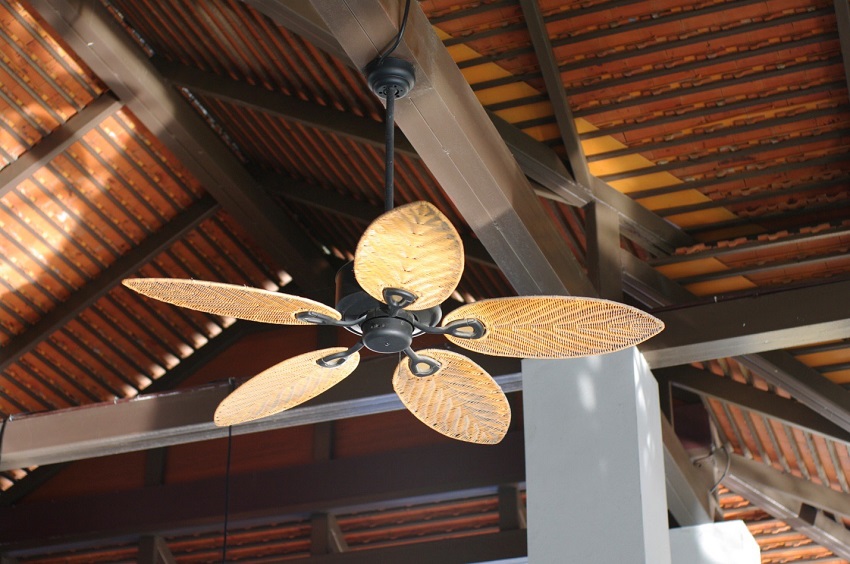
07 Aug Is Exhaust Fan Better Than Ceiling Fan?
If you are considering improving the ventilation in your home or office, you might find yourself debating between an exhaust fan and a ceiling fan. Both serve different purposes and can significantly impact your indoor environment. In this article, we’ll compare the two and help you decide which one is better suited for your needs. The article is brought to you by Thebinderblog.com.
Introduction to Exhaust Fans and Ceiling Fans
An exhaust fan is a ventilation system designed to expel stale air, pollutants, and odors from an enclosed space. It works by pulling air out of the room and expelling it outside, creating negative pressure that draws fresh air from the outside into the room. Exhaust fans are commonly installed in bathrooms, kitchens, and other areas where moisture and odors tend to accumulate.
What is a Ceiling Fan?
A kitchen ceiling exhaust fan, on the other hand, is primarily used for circulating air within a room to create a cooling effect. It doesn’t change the air in the room but instead helps in maintaining a comfortable indoor environment by promoting air circulation. The breeze generated by a ceiling fan can make you feel cooler, reducing the reliance on air conditioning and saving energy.
The Advantages of Exhaust Fans
- Effective Odor and Moisture Removal: Exhaust fans excel at removing unpleasant odors and excess moisture, which is particularly useful in bathrooms and kitchens. They help prevent mold and mildew growth by reducing humidity levels.
- Improved Air Quality: With pollutants and allergens removed from the room, the indoor air quality is significantly enhanced, contributing to a healthier living space.
- Space-Saving Design: Exhaust fans are usually compact and mounted on walls or ceilings, which saves valuable floor space.
- Targeted Ventilation: Since exhaust fans are installed in specific areas, they can efficiently target problem areas where odors and moisture accumulate.
The Advantages of Ceiling Fans
- Energy Efficiency: Ceiling fans consume much less energy compared to air conditioning systems. By using them, you can cut down on electricity bills while staying comfortable.
- Year-Round Use: Ceiling fans can be reversed to operate in both clockwise and counterclockwise directions. In the winter, reversing the fan’s direction helps to push warm air down, improving heating efficiency.
- Improved Air Circulation: The gentle breeze from a ceiling fan helps in even distribution of air throughout the room, preventing hot spots and promoting a more pleasant environment.
- Enhanced Aesthetics: Ceiling fans come in various designs and styles, adding a decorative element to your space while serving a functional purpose.
Which One Should You Choose?
The choice between an exhaust fan and a ceiling fan depends on your specific needs and priorities.
Choose Exhaust Fans If:
- You need to eliminate odors and moisture from specific areas like bathrooms and kitchens.
- Improving indoor air quality is a top priority for you.
- You want a space-saving ventilation solution.
Choose Ceiling Fans If:
- You want an energy-efficient way to cool down your living space.
- You prefer a year-round solution that helps in both summers and winters.
- You are looking for a stylish addition to your interior decor.
Conclusion
Both exhaust fans and ceiling fans serve essential functions in creating a comfortable indoor environment. If you prioritize air quality and targeted ventilation, exhaust fans are the way to go. On the other hand, if you want a cost-effective and energy-efficient cooling solution that enhances air circulation, ceiling fans are the better choice. Assess your specific needs and preferences to make the right decision for your home or office.
FAQs
- Can I use both exhaust fans and ceiling fans together?
Yes, you can use both types of fans together. Exhaust fans will help in eliminating pollutants and moisture, while ceiling fans will promote air circulation and create a cooling effect.
- Are exhaust fans noisy?
Most modern exhaust fans are designed to operate quietly, but the noise level may vary depending on the quality and brand of the fan.
- How much energy does a ceiling fan consume?
The energy consumption of a ceiling fan is relatively low, ranging from 10 to 120 watts, depending on the fan’s size and speed.
- Can a ceiling fan replace an air conditioner?
While a ceiling fan can help in creating a cooling effect, it may not be able to replace the cooling power of an air conditioner on extremely hot days.
- Can I install an exhaust fan in a room without external ventilation?
It is possible, but for the exhaust fan to be effective, it is recommended to have an external ventilation system or outlet for the stale air to be expelled.



Sorry, the comment form is closed at this time.